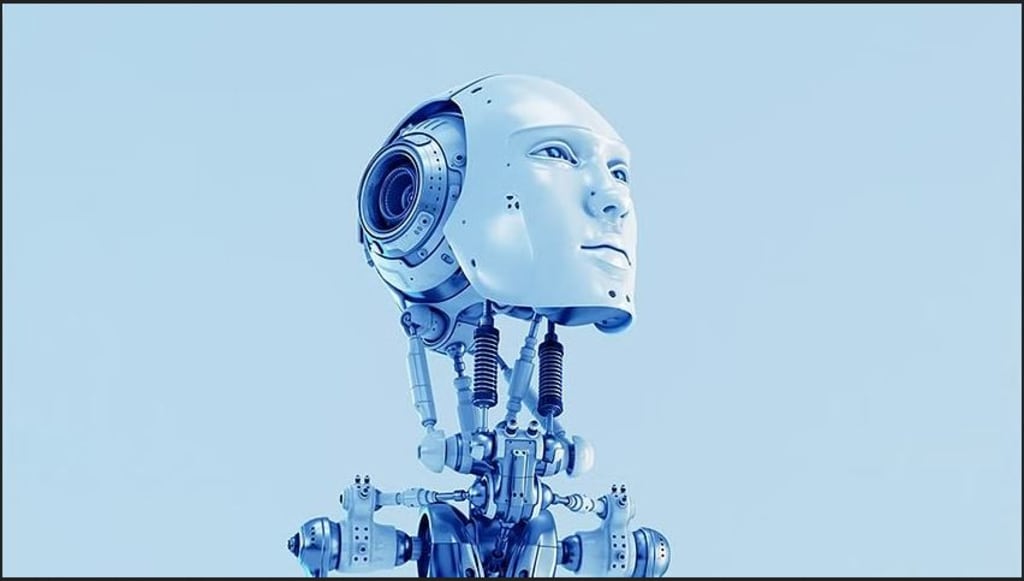Artificial Intelligence
Transforming Industries and Shaping the Future

Introduction:
Artificial Intelligence (AI) has emerged as one of the most transformative technologies of the 21st century. With its ability to mimic human intelligence and learn from vast amounts of data, AI has already begun reshaping numerous industries, revolutionizing processes, and opening up new possibilities for the future. In this article, we will explore the current state of AI, its applications across various sectors, and the potential impact it holds for our society.
Understanding Artificial Intelligence:
Artificial Intelligence refers to the development of computer systems that can perform tasks that typically require human intelligence, such as visual perception, speech recognition, decision-making, and problem-solving. AI systems can analyze vast amounts of data, identify patterns, and make predictions or decisions based on the information at hand.
AI Applications Across Industries:
1. Healthcare: AI is revolutionizing healthcare by enhancing diagnosis accuracy, speeding up drug discovery, and personalizing patient care. Machine learning algorithms can analyze medical records and genetic data to identify potential diseases and suggest tailored treatments.
2. Finance: In the financial sector, AI is streamlining processes, detecting fraud, and improving investment strategies. Intelligent chatbots provide customer support, while algorithmic trading systems analyze market trends to make informed decisions.
3. Transportation: The advent of self-driving cars is a prime example of AI's impact on the transportation industry. AI-powered systems enable vehicles to perceive their environment, navigate routes, and make real-time decisions, promising safer and more efficient transportation.
4. Manufacturing: AI-powered robots and automation are transforming manufacturing processes, improving efficiency, and reducing errors. Smart systems can optimize supply chains, predict maintenance needs, and enhance quality control.
5. Education: AI is reshaping the education sector by personalizing learning experiences, assessing student performance, and providing intelligent tutoring. Adaptive learning platforms can tailor educational content to individual needs, optimizing the learning process.
Challenges and Considerations:
While AI offers significant benefits, there are also challenges and considerations that need to be addressed. These include:
1. Ethical concerns: As AI becomes more prevalent, ethical questions arise. Issues such as data privacy, algorithmic bias, and the impact on employment require careful consideration to ensure responsible and fair AI implementation.
2. Security and privacy: The vast amount of data processed by AI systems raises concerns about security breaches and privacy violations. Safeguarding sensitive information and developing robust security measures are crucial to maintain public trust.
3. Skills and workforce displacement: The integration of AI may disrupt job markets and lead to workforce displacement. Preparing the workforce for the changing demands of an AI-driven economy and ensuring a just transition is essential.
The Future of AI:
As AI continues to advance, its potential impact on society is immense. Exciting developments lie ahead, such as:
1. Improved healthcare outcomes: AI can assist doctors in diagnosing diseases earlier, develop more effective treatments, and enable personalized medicine.
2. Enhanced sustainability: AI can help optimize energy consumption, manage resources efficiently, and enable smarter urban planning, contributing to a more sustainable future.
3. Advancements in scientific research: AI can accelerate scientific discoveries by analyzing complex data, simulating experiments, and identifying patterns that may not be apparent to humans.
4. Continued automation: As AI technologies improve, more tasks and processes will be automated, leading to increased productivity and freeing up human labor for more creative and strategic endeavors.
Conclusion:
Artificial Intelligence has the potential to revolutionize industries, improve efficiency, and solve complex problems. While it presents exciting possibilities, careful considerations and ethical frameworks must guide its development and deployment. By leveraging AI's power responsibly, we can harness its benefits and shape a future where technology and humanity coexist harmoniously, unlocking new frontiers and transforming our world for the better.





Comments
There are no comments for this story
Be the first to respond and start the conversation.